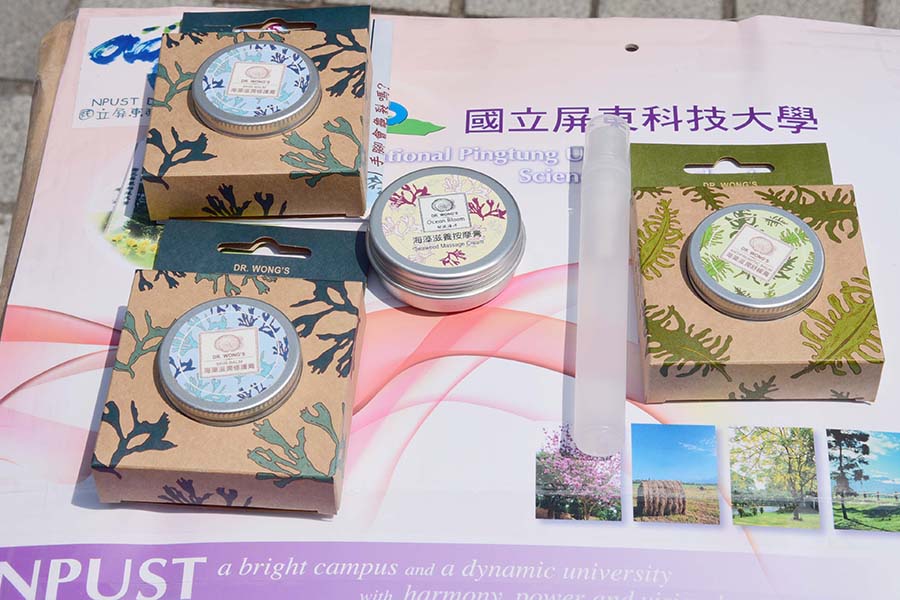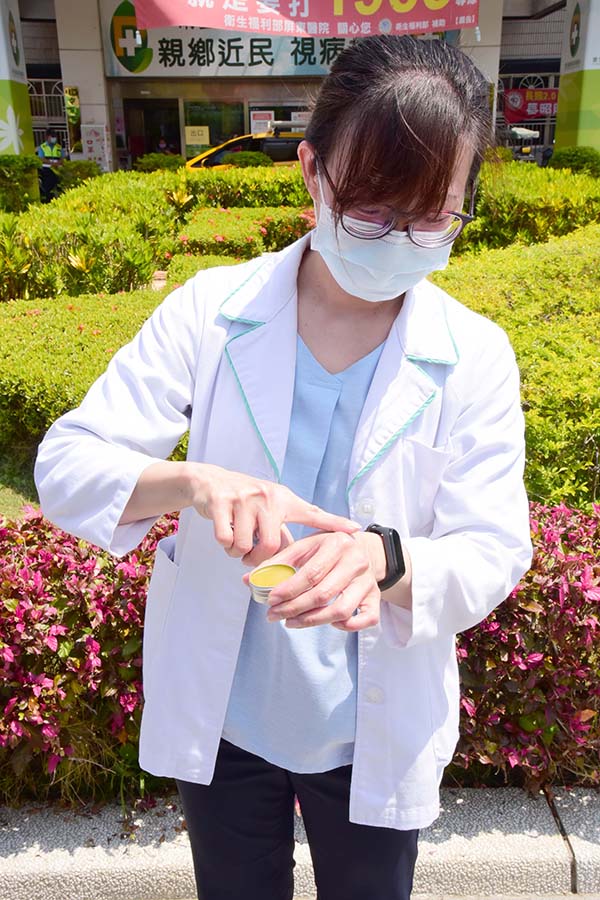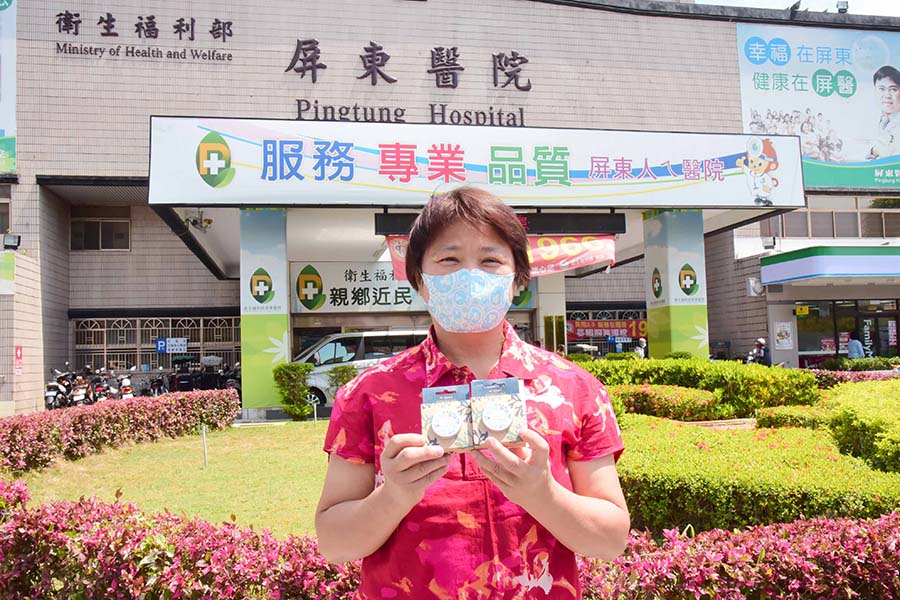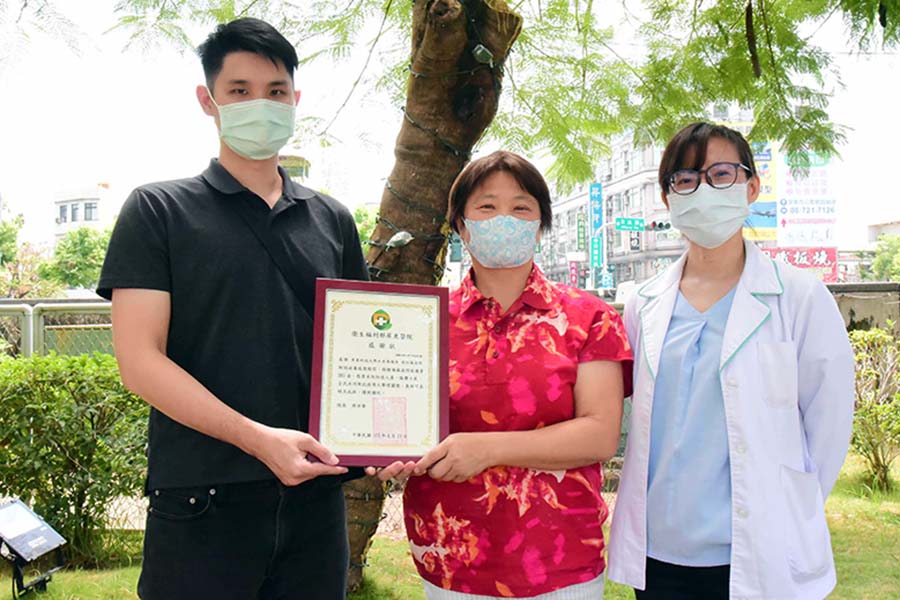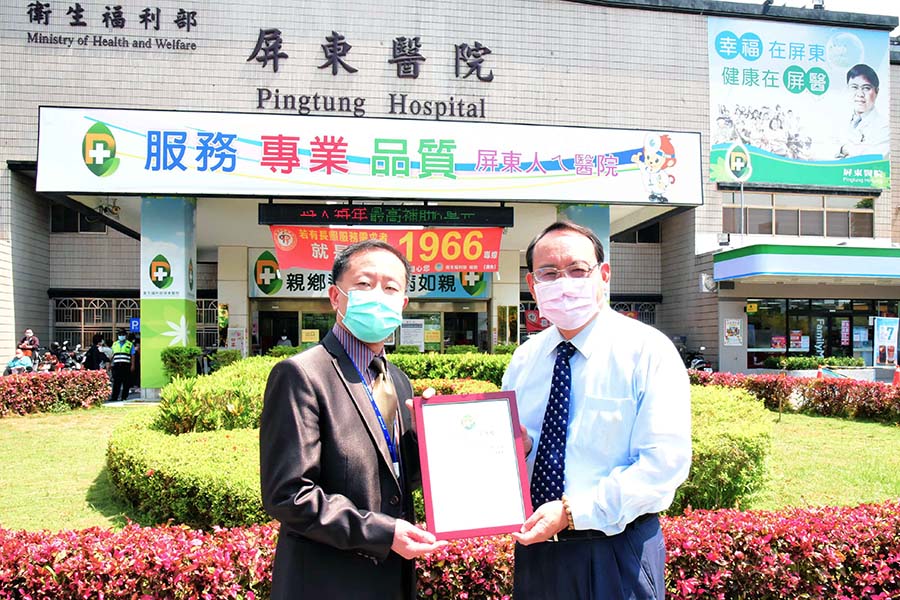NPUST Aquaculture Professor, Saou-Lien Wong, is an expert in the physiology, ecology and cultivation of algae. Wong and his teams have spent many years conducting research on the Taiwan’s native seaweeds with focus given to developing applications for their inherent cell-protecting and anti-inflammatory properties. Currently, as the world is facing the devastating COVID-19 virus, Wong’s research teams and the companies they are working with want to share some of their successful research with front-line medical workers in a token of gratitude to them for their work.
On April 14th, at the MOHW Pingtung Hospital, representatives from the university presented the medical workers with seaweed-based protective cream as an expression of thanks for their dedication. NPUST President Chang-Hsien Tai made remarks at the ceremony, stating that “it is not only the leaders in government who are contributing to the well-being of the people in Taiwan, we also recognize and thank the front-line medical workers for their efforts in caring for the health of the people.
“Through his research, Professor Saou-Lien Wong of NPUST’s Department of Aquaculture has identified beneficial types of seaweeds and used them to develop a series of care products. These are being donated to front-line medical workers to help them protect their skin from the type of damage that can result from their work– and to thank them for their efforts.”
The director of the hospital, Shah-hwa Chou expressed his gratitude that “NPUST is sharing the good results of its research with our medical personal –we are thankful to every sector for the encouragement offered.” Professor Wong remarked that “due to the impact of the virus, many medical workers are continuously washing and disinfecting and this can cause skin damage. We hope that by applying the cell-protecting, anti-inflammatory properties of the seaweeds, we can help health workers protect their skin. We also thank them for their hard work and pay tribute them”.
Research has demonstrated the numerous benefits of seaweed and identified anti-inflammatory, anticancer, and antiaging properties contained within. However, since most seaweed products on the market in Taiwan were being made with materials imported from temperate zones, the NPUST researchers began developing products that use seaweeds native to Taiwan. Their work resulted in such products as skin repair cream, soothing cream, massage cream, facial cleansing soap, nutrient shampoos and soaps, and household cleaning products. This is not only helping to reduce reliance on imported seaweed products, but is also adding value to the seaweeds cultivated domestically in Taiwan.
All of the products use natural ingredients extracted from the organic materials and do not contain any added chemical agents or preservatives. Also by avoiding the use of plastic packaging, the teams are working to create products that are more environmentally friendly. And now, as the world faces this coronavirus epidemic, NPUST and the businesses it is cooperating with are using these products to express their gratitude to the front-line medical workers who are working so hard to safeguard the health of the community.

